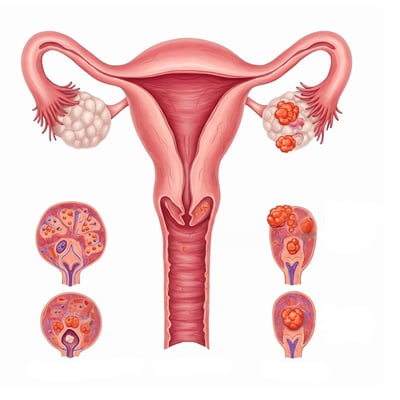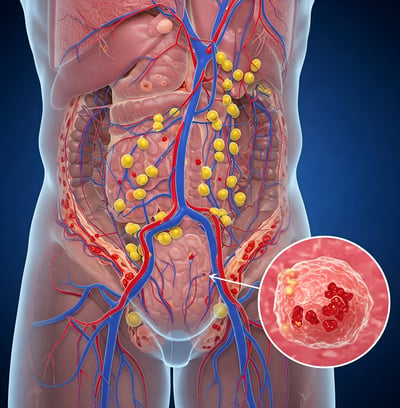Gynaecological Cancer
Gynaecological cancers refer to cancers that begin in a woman’s reproductive organs, including the cervix, ovaries, uterus, vagina, and vulva. With early detection, innovative treatments, and personalized care, gynaecological cancers are highly treatable, allowing many women to lead full and healthy lives.
Common Signs to Watch For:
Abnormal vaginal bleeding or discharge
Pelvic pain or pressure
Bloating or feeling full quickly (especially in ovarian cancer)
Changes in vulvar skin or persistent itching
Pain during intercourse
Early symptoms can sometimes be subtle, so regular gynecological exams are essential.
Treatment Options for Gynaecological Cancer:
Treatment plans are personalized depending on the type and stage of cancer, always aiming to ensure the best outcomes. Common options include:
Surgery:
Often the first line of treatment to remove tumors or affected tissues while preserving function whenever possible.
Chemotherapy:
Used to destroy cancer cells and prevent spread, sometimes before or after surgery.
Radiation Therapy:
Targets cancer cells with high precision, often used for uterine, vaginal, and cervical cancers.
Hormone Therapy:
Especially beneficial for certain types of uterine and ovarian cancers.
Targeted Therapy:
Designed to attack specific cancer cell markers, offering more tailored and effective treatment.
Immunotherapy:
A new and exciting option for certain advanced gynecological cancers, enhancing the body's natural defense mechanisms.


Understanding Gynaecological Cancer:
Each type of gynaecological cancer is unique, but all involve the uncontrolled growth of cells in the female reproductive system. Regular health check-ups, awareness of symptoms, and routine screenings play a vital role in early detection and successful treatment.
The main types include:
Cervical Cancer
Ovarian Cancer
Uterine (Endometrial) Cancer
Vaginal Cancer
Vulvar Cancer
Lymphoma
Lymphoma is a type of blood cancer that begins in the lymphatic system — an important part of the immune system that helps protect the body against infections and diseases. Thanks to remarkable advancements in treatment, lymphoma is now one of the most successfully treated types of cancer, with many patients achieving long-term remission and leading healthy lives.
Common Signs to Watch For:
Painless swelling of lymph nodes (neck, armpits, or groin)
Persistent fatigue
Unexplained fever
Night sweats
Unexplained weight loss
Prompt evaluation and diagnosis are key to effective treatment and recovery.
Treatment Options for Lymphoma:
Treatment is highly individualized based on the type, stage, and specific needs of each patient. Common options include:
Chemotherapy:
A cornerstone treatment that destroys cancerous cells throughout the body.
Targeted Therapy:
Focuses on specific markers on lymphoma cells, offering highly effective, personalized treatment options.
Immunotherapy:
Boosts the immune system to recognize and attack lymphoma cells.
Radiation Therapy:
Precisely targets affected lymph nodes and areas to eliminate cancer cells.
Stem Cell Transplant:
In selected cases, healthy stem cells are used to restore the bone marrow after intensive treatment.


Understanding Lymphoma:
Lymphoma occurs when lymphocytes (a type of white blood cell) grow uncontrollably. There are two main types:
Hodgkin Lymphoma (HL):
Characterized by the presence of specific abnormal cells called Reed-Sternberg cells.
Non-Hodgkin Lymphoma (NHL):
A diverse group of blood cancers affecting the lymphatic system.
Both types are highly treatable with modern therapies, especially when detected early.
contact@drrunusharma.com
© 2025 by Dr. Runu Sharma. All rights reserved design and developed by Aline Solutions Online
First Floor, RS Aesthetics and Clinics Bishan Tower, 17/1-A, Canal Rd, near Mata Bala Sundari Mandir, Jakhan Dehradun, Uttarakhand 248195, India.
